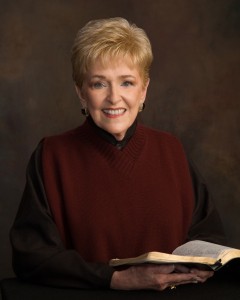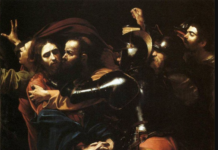By Mark Ellis

Composers lament the same frustration as they attempt to avoid repetition in their music. After 2,000 years, the limits of the 12-tone scale leave musicologists with a hunger for something more.
“They have come to a dead end,” observes Anne Ortlund, the popular Christian author and speaker. For 15 years, Anne was the organist for Dr. Charles Fuller’s radio broadcasts. Her hymn “Macedonia” was chosen as the theme hymn at the World Congress on Evangelism in Berlin.
She believes the worship that Christians will experience in heaven will go beyond our imaginations – and outside the limits of our current musical scale.
In the ancient world, only five notes were used. “The earliest people groups all sang the same five-point scale. The slaves who came to America still sang five-note songs that came from their past,” Ortlund says. “The old Celtic songs and even some Chinese music still has five notes.” Because all these ancient cultures used the same five notes, she believes the five-note scale must have preceded Babel, going back perhaps to the Garden of Eden.
Then, something amazing happened in the first century A.D. “When Christ came and the church was born, they stepped up to a 12-tone scale that no ears had ever heard before,” she notes. “It was so exciting for them.”
“That’s the way it will be in heaven,” Ortlund continues. “We will step up to something new – a new song — that we’ve never heard before, yet it will be based on something from the past.”
Ortlund sees Ephesians 5:19, which refers to psalms, hymns, and spiritual songs as a prophetic verse. “We had 3,000 years of psalms, then we had 400 years of hymns, and less than 50 years of spiritual songs,” she notes.
“I think the next breakthrough will be the new song in Revelation 14,” which describes worship that is like the roar of rushing waters. “The fact that it sounds like the roar of rushing waters would suggest it is based on what we know, so it’s familiar enough so we can sing it, but it’s not like anything we’ve sung before,” she notes. “It comes out of the 12 tones but is far more than that.”
“It is rooted in the new resurrection body,” Ortlund adds. “We will step up to something new we’ve never heard before, based on a new system that our earthly ears can’t fathom.” The same rapturous feelings that hit the early church when 12 tones emerged will be felt when Christians experience a new song that goes beyond anything heard on earth.
“I’ve heard music in the jungles of South America and Africa that is beyond the 12 tones,” she recalls. “The notes are squeezed in between the black and white notes on a piano, but they are uncomfortable. They haven’t caught on or spread.”
Ortlund forsees a rich musical brocade blending the cultures and traditions of the nations in heaven. “There are still nations in the last section of Revelation, so perhaps there will be different versions of the new song. I think there will be many different styles of music, maybe even classical and rock and roll.”
In considering how to inspire God-centered worship today, it is instructive to review the two examples given in Scripture, one in the Pentateuch and the other in Revelation.
“In the Pentateuch, the core was the Holy of Holies, with its incense, tapestry, gold, fire and bells,” she observes. “Outside there was the splitting of animal bones, the spurting of blood, the feeling of being unwashed, and the sadness of giving up fine bulls and sheep because of their darn sin.” The pattern was repeated over and over again, as the people offered sacrifices for their sins.
“There are 14 times in the Book of Revelation when God pokes a hole in the sky and allows us to see what is going on in heaven,” she says. “The lamb will be on the throne, the Alpha and Omega, encircled by a rainbow, with concentric circles of living creatures around Him, 24 elders, and thousands upon thousands of angels. Every living thing in the universe will be singing of his holiness.”
Both examples given in the Pentateuch and Revelation are God-centered, but the former was private and hidden, while future worship will be seen by all.
“Do you want to copy the past or the future?” Ortlund asks.
“We try to be God-centered today in worship, but actually if we were to center on God the way his two illustrations center on God, we would be like a child playing with dynamite.”




Very interested in what you are presenting. I’m a “lay” worshipper but believe in “a New Song” and having been exposed to Indian-Pakistani singing along with Tajik-Persian-Dari singing, I know they find sounds within the “12”.
I was a friend of Anne’s mother, Mary Sweet, while working at the US Army War College Chapel in Carlisle, Pa. Many times after visiting her daughter, Mary would bring me xeroxed copies of her latest writings so I could sing them to our Bible Study groups. Anne has truly been blessed with a wonderful talent. Glad to read this article.
delighted to read Anne’s message, I play a flute and seek for the new sounds…the sounds of Heaven..they will incorporate notes from a higher octave; bring deliverance and break bondages. I am excited…
Jesus music…come Lord Jesus.
Robyn
there was a time I was escorted to heaven by an angel girl. She showed me angels singing a song w a harp instrument. I couldn’t understand it nor sing it. It was really beautiful. Get closer to Zion the New Jerusalem to learn the song. Be ready for the Spirit and The Bride
Comments are closed.